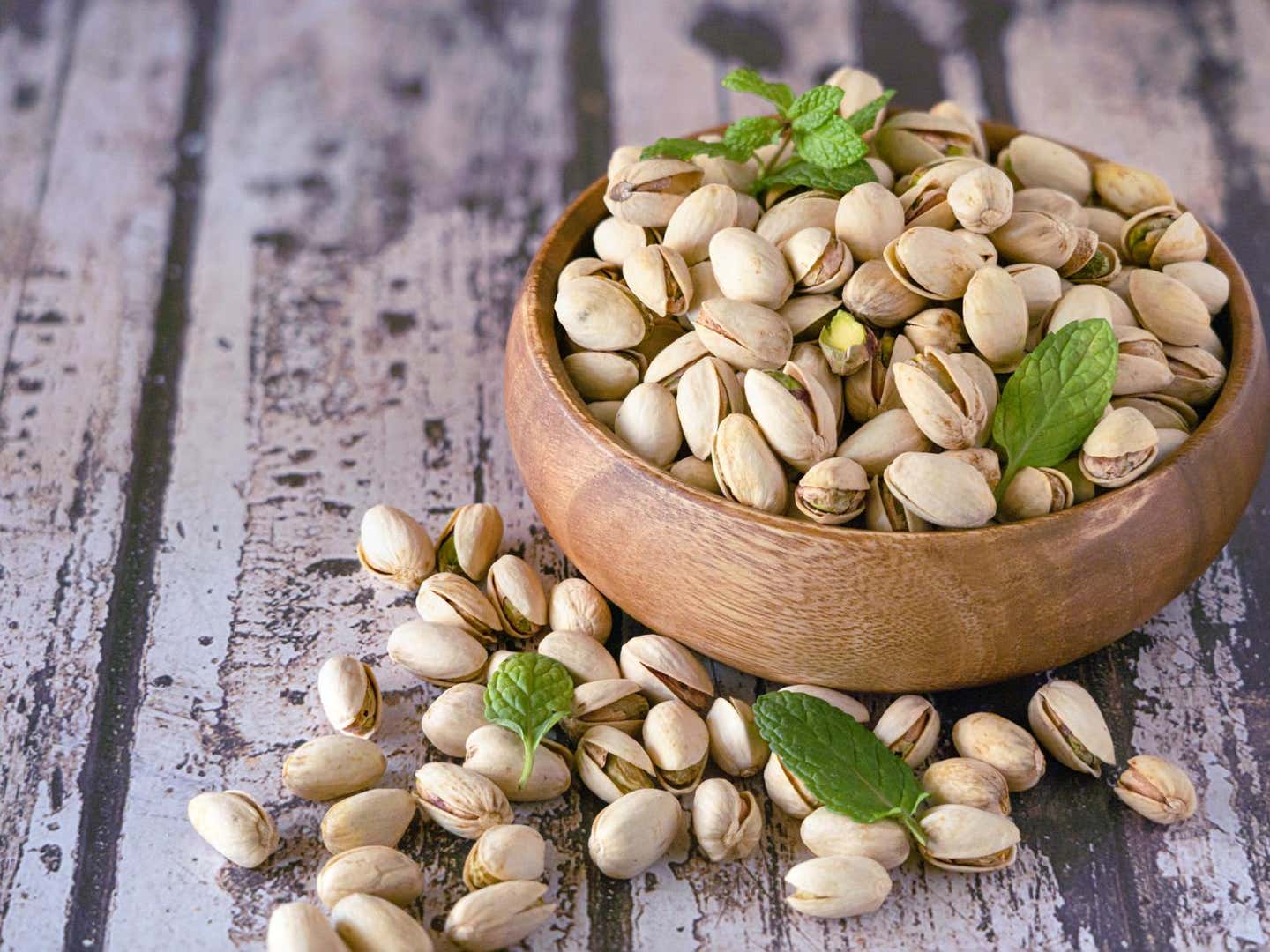Pistachio snacks may boost gut health for diabetes prevention, study finds
Pistachios eaten at night may shift gut bacteria in ways that support better blood sugar control and lower inflammation in prediabetes.

Pistachios may improve gut bacteria linked to blood sugar and inflammation in people with prediabetes. (CREDIT: Getty Images)
Prediabetes affects nearly one in three Americans. Most people with this condition are likely to develop Type 2 diabetes if nothing changes. Diet plays a major role, yet many strategies focus mainly on cutting calories or sugar. But new research highlights a different path—one that leads through your gut.
A recent study from Penn State suggests that pistachios might help reshape the gut microbiome in adults with prediabetes. These changes in gut bacteria could support better blood sugar control and reduce inflammation, two key factors in preventing diabetes. The idea is simple: what you eat, especially before bed, may deeply influence the bacteria living inside your digestive system—and in turn, those bacteria can impact your overall health.
Replacing Carbs with Pistachios at Night
Many healthcare providers tell people with prediabetes to eat a small snack at night—usually 15 to 30 grams of carbohydrates. That might be a slice or two of whole grain bread. The goal is to prevent low blood sugar overnight and stabilize it in the morning. But what happens when you replace that snack with pistachios?
In this study, 51 adults with prediabetes tried two bedtime snack options: pistachios or a standard carbohydrate-based snack. Each snack period lasted 12 weeks, and everyone switched midway. The team made sure the effects from the first part didn’t carry over to the second by including a break between treatments.
Researchers collected stool samples throughout the study and used a method called 16S rRNA gene sequencing to identify which bacteria were present. This method focuses on the genetic material of bacteria, helping scientists tell which types are more or less active in the gut.
More Good Bacteria, Less of the Bad
When participants ate about two ounces of pistachios before bed, their gut bacteria changed in a noticeable way. Some helpful bacteria became more common. These included Roseburia and bacteria from the Lachnospiraceae family. These microbes are known to produce butyrate—a short-chain fatty acid with powerful effects.
Related Stories
- Antibody spray breakthrough could prevent hay fever and asthma
- These everyday foods can naturally and significantly lower blood pressure
- Staying active slows down memory loss and keeps your brain sharp, study finds
Butyrate is not just fuel for your gut cells. It helps keep the gut lining strong and supports anti-inflammatory functions throughout the body. “Pistachios seem to be able to meaningfully shift the gut microbial landscape in adults with prediabetes especially when consumed as a nighttime snack,” said Kristina Petersen, associate professor of nutritional sciences at Penn State and senior author of the study. That shift may do more than support gut health. According to Petersen, these microbial changes could also slow the onset of Type 2 diabetes or help reduce inflammation that contributes to other diseases.
Terrence Riley, the study’s lead author and a postdoctoral research fellow at Louisiana State University, explained the usual approach. “A common dietary recommendation for individuals with prediabetes is to consume a nighttime snack consisting of 15 to 30 grams of carbohydrates to help regulate overnight and morning blood glucose levels,” he said. “As an example, you could eat one or two slices of whole grain bread.” But pistachios, he noted, provide similar blood sugar effects without being a simple carb.
Less Harmful Bacteria After Pistachio Snacks
The benefits didn’t stop with the rise in healthy microbes. The pistachio snack also lowered the levels of certain bacteria linked to negative health effects. One example was Blautia hydrogenotrophica, which can produce compounds that may build up in the blood and damage the heart or kidneys.
Another was Eubacterium flavonifractor, which breaks down antioxidants from foods like pistachios. Lower levels of these microbes might help preserve beneficial nutrients and reduce risk factors tied to chronic disease.
That change is important. Your gut microbiome acts like an internal control panel. Some bacteria help you absorb nutrients and keep inflammation low, while others may work against you. Changing the balance toward helpful microbes could be one of the simplest ways to protect long-term health, especially when early signs of metabolic disease appear.
A Strong Study Design Adds Power
Petersen pointed out that the design of this research adds confidence to the results. Because the study was randomized and used a crossover model, every participant tried both snack types. That way, the scientists could compare the effects more directly and rule out differences between individuals.
Unlike many nutrition studies that rely on short-term measurements, this one ran over 12-week periods. That gave the researchers time to see real changes in gut bacteria. The analysis showed that the microbiome didn’t just shift slightly—it took on a different structure depending on the type of bedtime snack.
Still, Petersen said there’s more to learn. While the study clearly showed changes in gut bacteria, it didn’t measure long-term outcomes like blood sugar levels or insulin resistance. “It remains unclear whether these changes directly translate to improvements in health,” she said. Future research is needed to connect the dots between microbiome shifts and real-world health effects.
What This Means for Your Health
Though more studies are needed, this research opens the door to new thinking about diet and diabetes prevention. Instead of just cutting carbs or counting calories, it might be smarter to think about feeding the right microbes. Pistachios, rich in fiber, protein, and healthy fats, could be part of that strategy.
They’re not just a source of nutrition—they’re also a tool to shape your gut environment. If you're at risk for Type 2 diabetes or trying to manage blood sugar, swapping a slice of bread for a handful of pistachios before bed might support both your digestive system and your metabolism.
In the end, small changes may add up to big benefits. Your gut bacteria are always listening to what you eat. With smart food choices, you might be able to guide them toward supporting better health from the inside out.
Research findings are available online in the journal Current Developments in Nutrition.
Note: The article above provided above by The Brighter Side of News.
Like these kind of feel good stories? Get The Brighter Side of News' newsletter.



